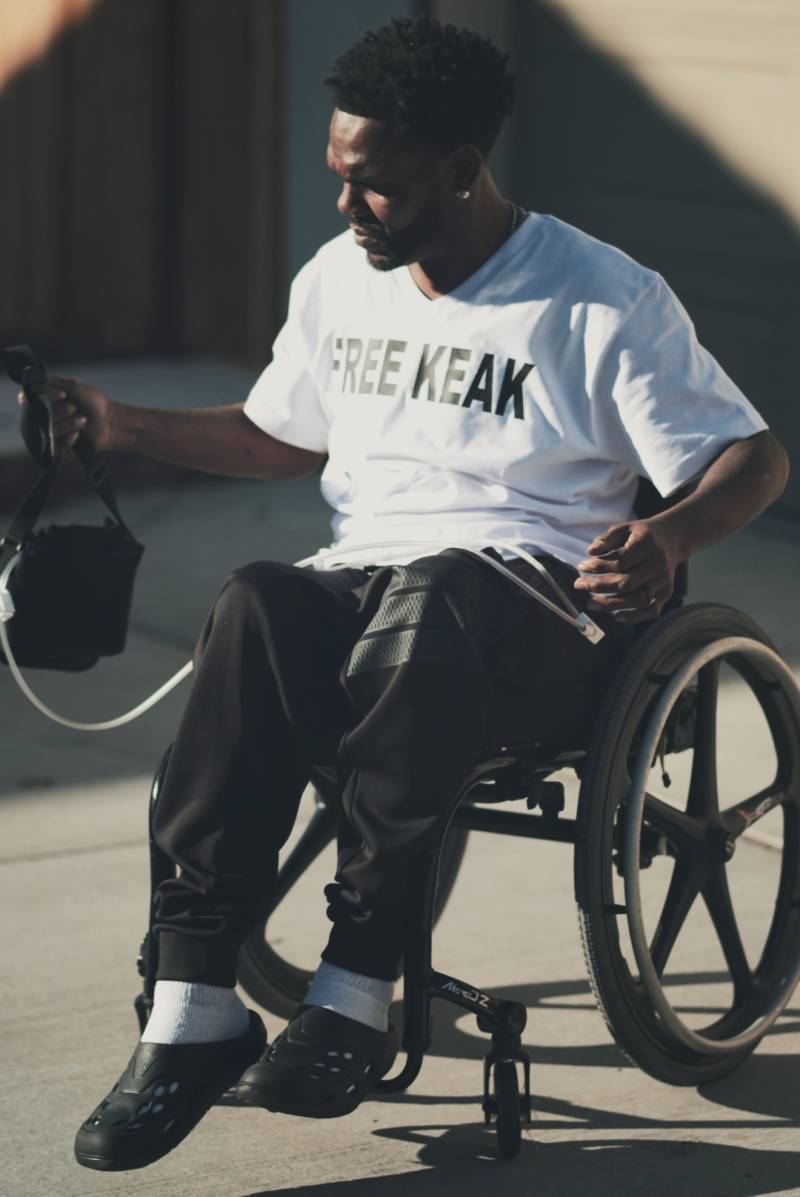
Bay Area rap star Keak Da Sneak has caught a break from prison—for now.
Keak da Sneak was scheduled to begin a prison sentence in California’s Amador County earlier today, Feb. 7. But at his hearing, Judge J.S. Hermanson granted the “Super Hyphy” rapper an additional 60 days due to his medical condition. His new sentencing date is April 11.
Last week, KQED first reported that Keak Da Sneak, a longtime fixture in Bay Area hip-hop, awaited a 16-month sentence in California state prison for possession of a firearm is a convicted felon. In an exclusive interview, Keak, whose real name is Charles Kente Williams, said that though California law prohibits him from owning a gun due to his criminal record, he took it upon himself to carry one for protection after surviving a shooting in Oakland in January 2017.
The criminal case against Williams began in March 2017 after a police officer searched his car at a gas station in Amador County and found the gun. As the case was ongoing, Williams’ health took a drastic turn for the worse. In August of that year, he was the victim of another shooting in Richmond. The incident left him in critical condition, and he now uses a wheelchair full-time, as well as a catheter and colostomy bag. A nurse comes to his house three times a week to clean his bed sores, which can lead to a dangerous infection if not cared for properly.
Because of the severity of his medical condition, Williams is lobbying for an alternative sentence of house arrest instead of prison time. According to disability rights experts, not all California state prisons are ADA accessible, and even fewer can accommodate an inmate who requires regular medical care for a chronic condition. The California Department of Corrections and Rehabilitation’s medical system has been under federal oversight since 2006, when a federal court ruled it unconstitutionally inadequate.

